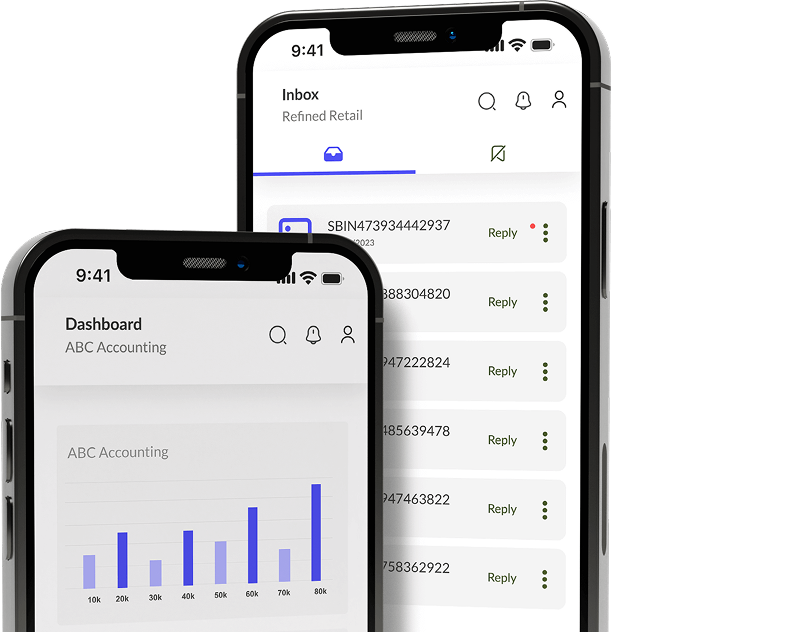Ask someone to name a finance startup, and you'll probably hear the usual stuff like payments, lending, maybe a neobank. While those are the primary startup ideas, they don’t cover the whole story. So, we are here to talk about something else.
We’re talking about forensic accounting, AI-led digital books, crypto consulting, and even blockchain-based ledgers.
If you’re a curious founder, investor, or even just finance-adjacent, you’re going to love this one as we have dived deep down to find 4 such innovative business ideas for startups in finance.
1. Forensic Accounting – From Post-Fraud to Built-In Trust
For years, forensic accounting was the thing companies hired after they discovered a problem, a financial post-mortem. But now that’s changing. Today, it’s being used proactively and not reactively, especially by startups, investors, and family businesses that want transparency before something breaks.
What it looks like now:
PE (Private Equity) and VC (Venture Cap) firms ordering forensic reviews before writing cheques
Founders requesting “financial hygiene audits” ahead of succession planning or fundraising
CAs offering light forensic reviews as part of audit prep
This is becoming a real business, not just a function.
Firms like Treelife are building forensic offerings specifically for startups. And platforms like Indiaforensic are training a new wave of forensic specialists, not just for fraud, but for investor-grade diligence.
Why it matters:
In an era where compliance pressure is rising and mistrust spreads fast, startups that bake in transparency from day one don’t just survive, they scale smarter.
2. AI-Backed Digital Accounting – The Ledger That Thinks With You
AI in accounting isn’t science fiction anymore. It’s already helping thousands of businesses reconcile bank statements, auto-fill ledgers, predict tax outflows, and even flag suspicious entries.
A lot of tools offer AI-powered finance dashboards that do everything from lease accounting to cash flow forecasting. Some Indian startups are applying AI to everyday tasks like GST matching, invoice categorization, and data entry, saving hours of grunt work.
What’s really happening:
Small teams using AI to replicate what used to need full-time finance staff
CAs relying on AI-powered tools to speed up pre-audit cleanups
SaaS products suggesting ledger corrections before the CA even logs in
The shift here is quiet but powerful. Instead of asking humans to operate software, AI-led accounting tools are starting to operate like personal assistants. They spot, suggest, nudge, and change on the spot.
And as businesses grow more complex, but teams stay small, this will only get bigger.
3. Blockchain-Based Accounting – Shared Truth in a Distrusting World
Blockchain in finance has long been talked about in the context of payments or crypto, but it has another, subtler use: accounting. At its core, blockchain-based accounting creates a shared ledger that can’t be tampered with. It is a single source of truth across multiple parties.
Imagine:
Audit trails that don’t need PDF exports
Vendor invoices that sync directly with buyer books
CSR funds that are traceable from donation to deployment
Who’s building this?
EY’s OpsChain is doing this for large enterprises
OnlyGood, a Gurugram startup, uses blockchain to track carbon credits, proving that traceable ledgers go beyond cash
The Indian government itself has experimented with blockchain-based recordkeeping in subsidy tracking and invoice trails
There are challenges in this, for sure. Yes, adoption is still early. Yes, integration is hard. But as audit pressure grows and ESG (Environment, Social and Governance) funding demands transparency, tamper-proof ledgers will stop being a "nice to have."
They’ll be the new compliance.
4. Crypto Consulting – Where Code Meets Compliance
This might be the most misunderstood one of all. And quite probably one of the most important ones as well.
Crypto consulting isn’t just telling people which token to buy. It’s a real business that sits at the intersection of tax law, digital security, smart contracts, and investment planning.
India has over 115 million crypto users, more than any other country. But most of them (and their accountants) still don’t know how to report their gains, calculate TDS, or secure their wallets.
Enter crypto consultants.
What they actually do:
Help investors file crypto taxes under India’s tax regulations
Guide businesses on accepting crypto payments
Audit smart contracts and token models for startups
Create compliant token strategies for NFTs, DAOs (Decentralized Autonomous Organizations), or community launches
It’s advisory, plus technical, plus legal, and the market is only growing.
As India slowly experiments with CBDCs (Central Bank Digital Currencies, like the e-rupee) and more startups raise funds via Web3, the need for people who understand both crypto and regulation will explode.
So, what connects them all?
Each of these four spaces, forensic accounting, AI-led books, blockchain auditing, and crypto consulting, is driven by the same underlying shift:
Finance is getting more complex. And everyone wants clarity, simplicity and automation.
Whether it’s an investor trying to avoid another startup scandal or a founder trying to predict next month’s cash burn, the demand is the same:
“Help me trust my numbers again.”
That’s where these ideas come in. They don’t just add features. They add confidence.
And that’s the kind of innovation worth building.




